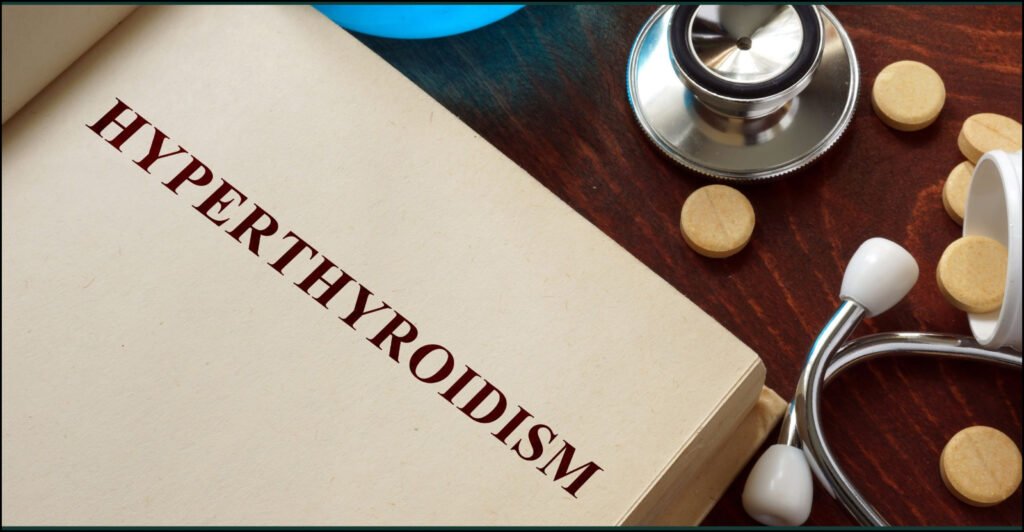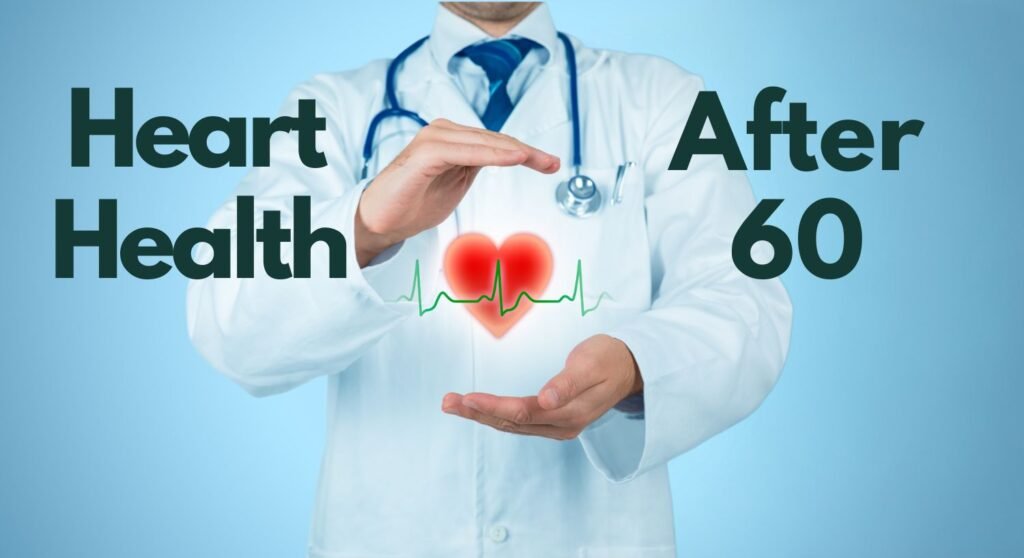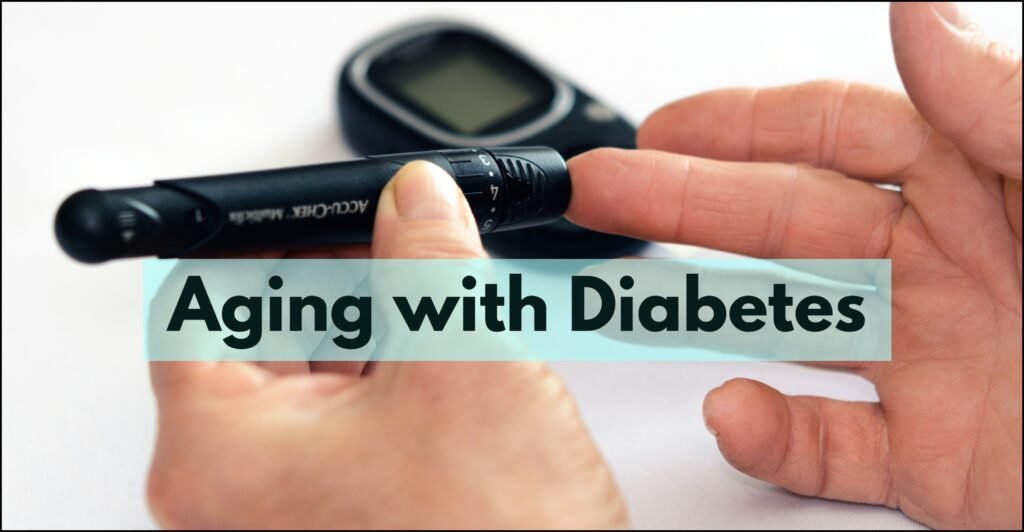Hypothyroidism and Aging: What Every Senior Should Know

Last Updated on July 3, 2025 by Rose Ann
Are you feeling more tired than usual, struggling with unexpected weight gain, or finding yourself reaching for an extra sweater even when others feel comfortable? These seemingly minor changes might be more significant than you think. Hypothyroidism—a condition where your thyroid gland produces insufficient hormones—affects millions of adults, with the likelihood increasing as we mature.
Your thyroid may be small, but it’s mighty. This butterfly-shaped gland in your neck acts as your body’s metabolic control center, regulating everything from energy levels and body temperature to heart rate and weight management. When it doesn’t function optimally, the ripple effects can impact your daily life and overall well-being.
This comprehensive guide explores how hypothyroidism specifically affects mature adults, diving into the subtle symptoms that are often mistaken for “normal aging,” the latest treatment approaches tailored for seniors, and practical strategies for managing this condition effectively. You’ll discover why hypothyroidism is more common after age 60, learn about the connection between thyroid function and other age-related health concerns, and explore evidence-based treatments that can help restore your energy and vitality.
Whether you’re experiencing symptoms yourself, supporting a loved one, or simply want to stay informed about important health topics, this article provides the knowledge you need to recognize, understand, and address hypothyroidism confidently. Let’s explore how taking charge of your thyroid health can significantly improve your quality of life during these fulfilling years.
Everything You Need to Know About Hypothyroidism on Aging
As we navigate the journey of aging, our bodies undergo remarkable transformations. Among these changes, one condition stands out for its profound yet often overlooked impact: hypothyroidism. This condition occurs when your thyroid gland—that small, butterfly-shaped gland nestled in your neck—doesn’t produce enough thyroid hormones to keep your body running smoothly.
Think of your thyroid as your body’s thermostat and energy controller rolled into one. When it’s working properly, you hardly notice it’s there. But when it starts to lag, the effects can ripple through every aspect of your daily life, from your energy levels to your mood, and even your ability to stay warm on a chilly day.
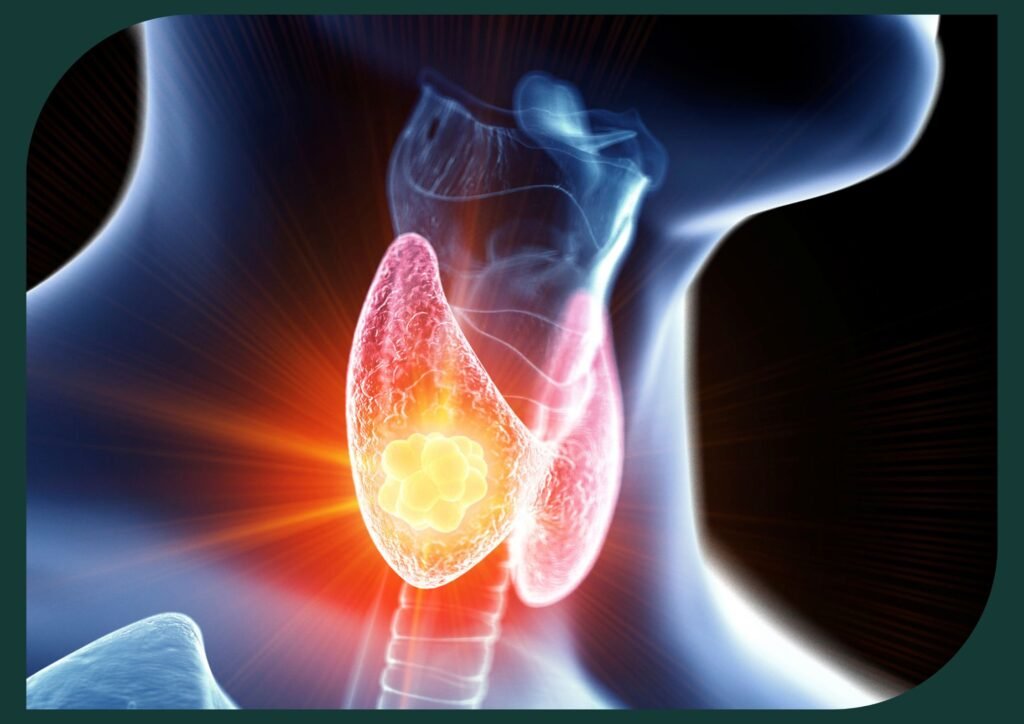
Prefer to listen rather than read?
The Thyroid Gland: An Overview
Before diving into how hypothyroidism affects mature adults, let’s understand what makes this small gland so important. Located at the base of your neck, just below your Adam’s apple, the thyroid gland produces two crucial hormones: thyroxine (T4) and triiodothyronine (T3). These hormones act like messengers, traveling through your bloodstream to communicate with virtually every cell in your body.
These thyroid hormones are responsible for:
- Regulating your metabolism and energy production
- Controlling your body temperature
- Supporting heart function and circulation
- Influencing brain function and mood
- Maintaining healthy skin, hair, and nails
- Supporting proper digestion and muscle function
When your thyroid produces adequate amounts of these hormones, your body’s systems work in harmony. However, when production falls short, this delicate balance is disrupted, leading to the constellation of symptoms we associate with hypothyroidism.
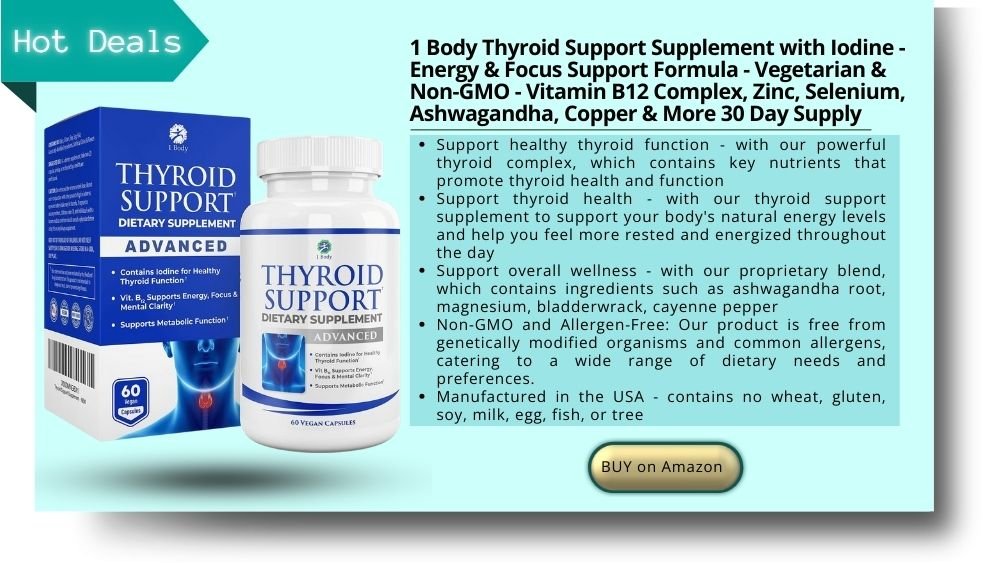
Aging and Thyroid Function
Research shows that thyroid function naturally changes as we age, with TSH levels gradually rising and thyroid hormone production subtly declining over time. This doesn’t mean that developing hypothyroidism is inevitable, but it does explain why mature adults are at higher risk for thyroid-related issues.
Hypothyroidism is clearly more common in adults over 60 than in younger populations, with some studies suggesting that 7%-14% of mature adults have elevated thyroid stimulating hormone (TSH) levels, indicating potential thyroid dysfunction.
What makes this particularly challenging is that the symptoms of hypothyroidism can be subtle and develop gradually, making them easy to dismiss as “normal aging.” However, understanding the distinction between age-related changes and thyroid dysfunction is crucial for maintaining optimal health and quality of life.
Causes of Hypothyroidism
Understanding the root causes of hypothyroidism can help you and your healthcare provider identify risk factors and develop appropriate prevention strategies.
Autoimmune Diseases
The most common cause of hypothyroidism is Hashimoto’s thyroiditis, an autoimmune condition where your body’s immune system mistakenly attacks the thyroid gland. This condition predominantly affects women and tends to run in families, suggesting a genetic component.
In Hashimoto’s thyroiditis, the immune system creates antibodies that gradually damage thyroid tissue, reducing the gland’s ability to produce hormones. This process typically occurs slowly over months or years, which is why symptoms often develop gradually and may be initially overlooked.
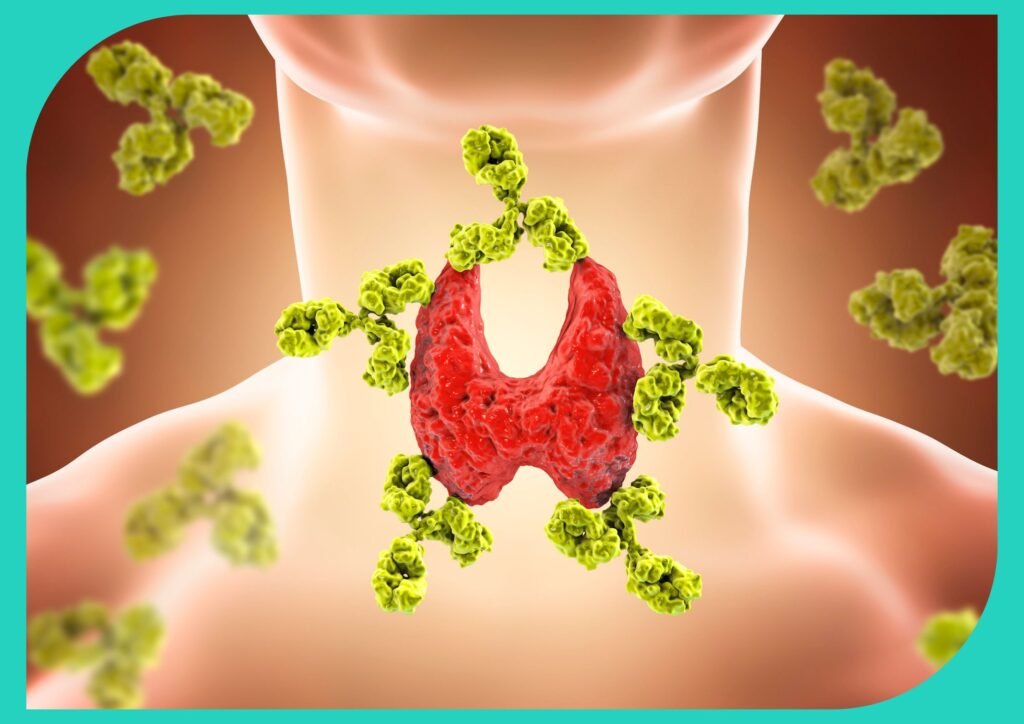
Radiation Therapy and Medication
Introducing radiation therapy, a dual-purpose tool used in battling cancer. While it can save lives, it may also inadvertently impair the thyroid gland, leading to hypothyroidism. And we must not overlook the influence of specific medications, seemingly harmless yet capable of disrupting our thyroid function.
- Radiation therapy for head, neck, or chest cancers can damage the thyroid gland
- Thyroid surgery for cancer, nodules, or hyperthyroidism may remove too much thyroid tissue
- Medications such as lithium, amiodarone, and some cancer treatments can interfere with thyroid hormone production
Iodine Deficiency
Iodine is a crucial element in the production of thyroid hormones. Without enough iodine, the thyroid gland cannot create these necessary hormones, resulting in hypothyroidism. Iodine deficiency is a leading cause of this condition globally.
Iodine is an essential mineral the body cannot produce, so it must be obtained through the diet. The thyroid gland uses iodine to produce thyroid hormones, namely thyroxine (T4) and triiodothyronine (T3).
When the body is deficient in iodine, the thyroid gland is unable to produce enough thyroid hormones to meet its needs. As a result, the body’s metabolic processes slow down, and various symptoms associated with hypothyroidism can manifest.
The consequences of iodine deficiency go beyond the development of hypothyroidism. It can also lead to the enlargement of the thyroid gland, known as a goiter, as the gland tries to compensate for the lack of iodine.
Genetic
Some people are born with thyroid abnormalities or have genetic predispositions that make them more susceptible to thyroid problems later in life. If you have family members with thyroid conditions, you may be at higher risk and should discuss regular screening with your healthcare provider.
Symptoms of Hypothyroidism
Hypothyroidism symptoms can be frustratingly vague and often develop so gradually that they’re easy to attribute to other causes. Here’s what to watch for:
Energy and Metabolism Changes
Persistent fatigue is often the first and most noticeable symptom. This isn’t the tired feeling you get after a busy day—it’s a deep, persistent exhaustion that doesn’t improve with rest. You might find yourself needing more sleep than usual or feeling like you’re moving through molasses during daily activities.
Unexplained weight gain or difficulty losing weight despite maintaining your usual eating and exercise habits is another common early sign. The metabolic slowdown associated with hypothyroidism can make weight management particularly challenging.
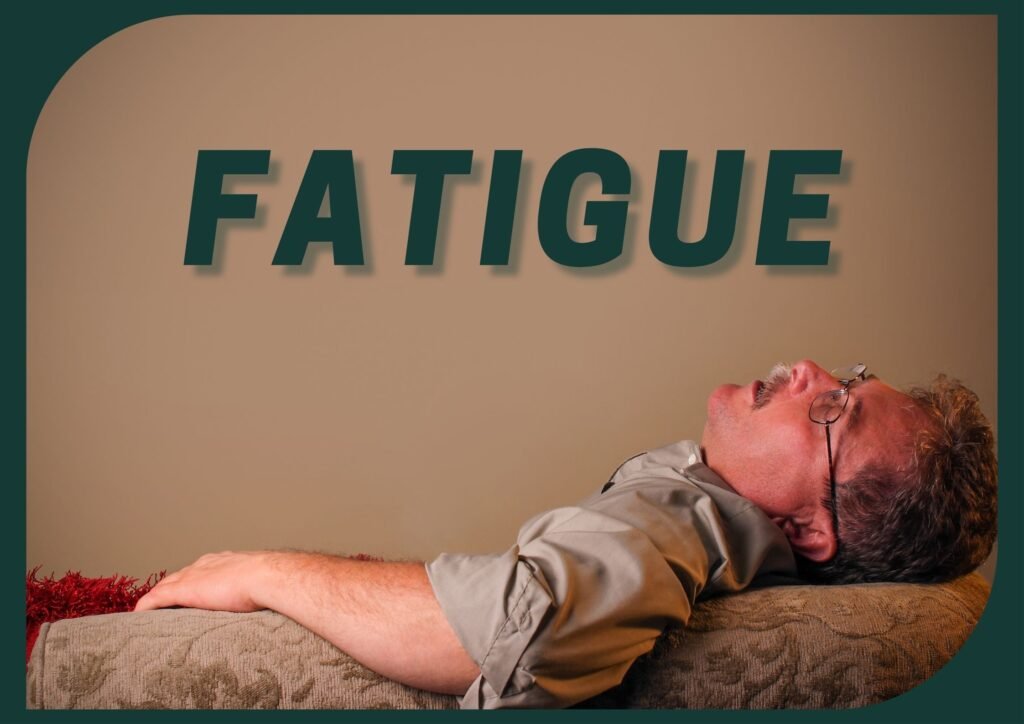
Temperature Regulation Issues
Cold intolerance often manifests as feeling chilly when others are comfortable, needing extra layers of clothing, or having difficulty warming up even in heated environments. Your hands and feet might feel perpetually cold, and you may find yourself seeking warm environments more than usual.

Physical Changes
Dry skin and hair are common symptoms that many people initially attribute to aging or environmental factors. Your skin might become rough, flaky, or itchy, while your hair may become dry, brittle, or thin. Some people notice their eyebrows thinning, particularly the outer portions.
Muscle and joint discomfort can include general aches, stiffness, or weakness. You might notice that physical activities that were once easy now feel more challenging, or that you experience more muscle soreness than expected.

Cognitive and Emotional Symptoms
Brain fog—difficulty concentrating, memory problems, or feeling mentally sluggish—is a frustrating symptom that can significantly impact daily life. You might find yourself forgetting names, having trouble following conversations, or struggling to complete tasks that once felt routine.
Mood changes can include feeling more depressed, anxious, or irritable than usual. These emotional symptoms are often overlooked because they can be attributed to life circumstances or other health conditions.

Other Notable Symptoms
Slow heart rate or heart palpitations
Constipation due to slowed digestive processes
Hoarse voice or throat discomfort
Heavy or irregular menstrual periods in women who haven’t yet reached menopause
Elevated cholesterol levels detected through blood tests
Diagnosis and Treatment
Diagnosing hypothyroidism requires a comprehensive evaluation thatIf you’re experiencing symptoms that might indicate hypothyroidism, the diagnostic process typically begins with a comprehensive evaluation by your healthcare provider. Often involves a blood test to measure the levels of thyroid hormones in the body.
This test, known as the thyroid function test, primarily focuses on measuring the levels of thyroid-stimulating hormone (TSH) and thyroxine (T4). TSH is produced by the pituitary gland and stimulates the thyroid gland to produce thyroid hormones.
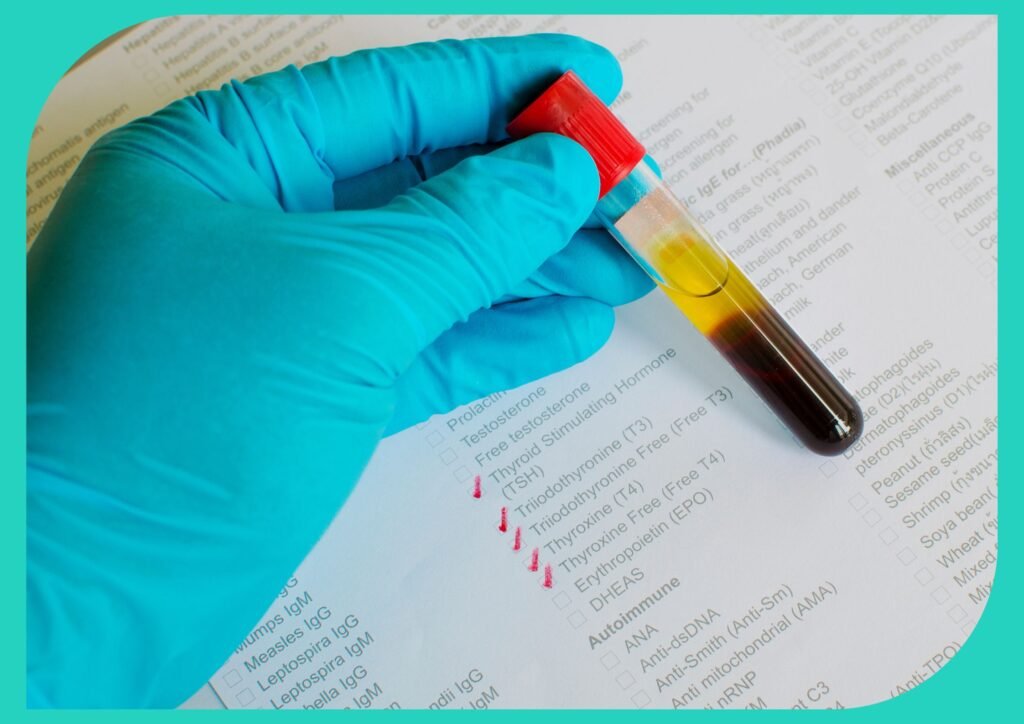
Blood Tests: The Key to Diagnosis
The primary diagnostic tool is a blood test that measures:
Thyroid Stimulating Hormone (TSH): This hormone, produced by your pituitary gland, tells your thyroid how much hormone to produce. When thyroid hormone levels are low, TSH levels rise as your body tries to stimulate more hormone production. For adults over 65, TSH levels may naturally be slightly higher, and treatment thresholds may differ from younger adults.
Free Thyroxine (Free T4): This measures the amount of active thyroid hormone available in your bloodstream. Low Free T4 levels combined with high TSH typically confirm hypothyroidism.
In some cases, your doctor might also test for:
- Free Triiodothyronine (Free T3): The most active form of thyroid hormone
- Thyroid antibodies: To determine if an autoimmune condition is causing the problem
- Reverse T3: In complex cases where standard tests don’t provide clear answers
Important Considerations for Mature Adults
Recent research suggests that slightly elevated TSH levels in adults over 65 may not always require treatment, as the normal range for TSH appears to increase with age. This means your doctor will consider your symptoms, overall health, and individual circumstances when determining whether treatment is necessary.
Medications for Hypothyroidism
The good news is that hypothyroidism is highly treatable, and most people experience significant improvement in their symptoms with appropriate therapy.
Thyroid Hormone Replacement Therapy
Levothyroxine (LT4) remains the standard of care for treating hypothyroidism. This synthetic hormone replaces what your thyroid isn’t producing naturally. The medication is typically taken once daily on an empty stomach, preferably first thing in the morning.
Special Considerations for Mature Adults:
Treatment of hypothyroidism in mature adults requires careful consideration of individual factors. Your doctor may:
- Start with a lower dose and increase gradually to avoid putting stress on your heart
- Target a TSH range in the lower half of the normal range (0.4 to 2.5 mIU/L) for optimal symptom relief
- Monitor you more closely for side effects, particularly if you have heart conditions
- Adjust dosing based on other medications you’re taking
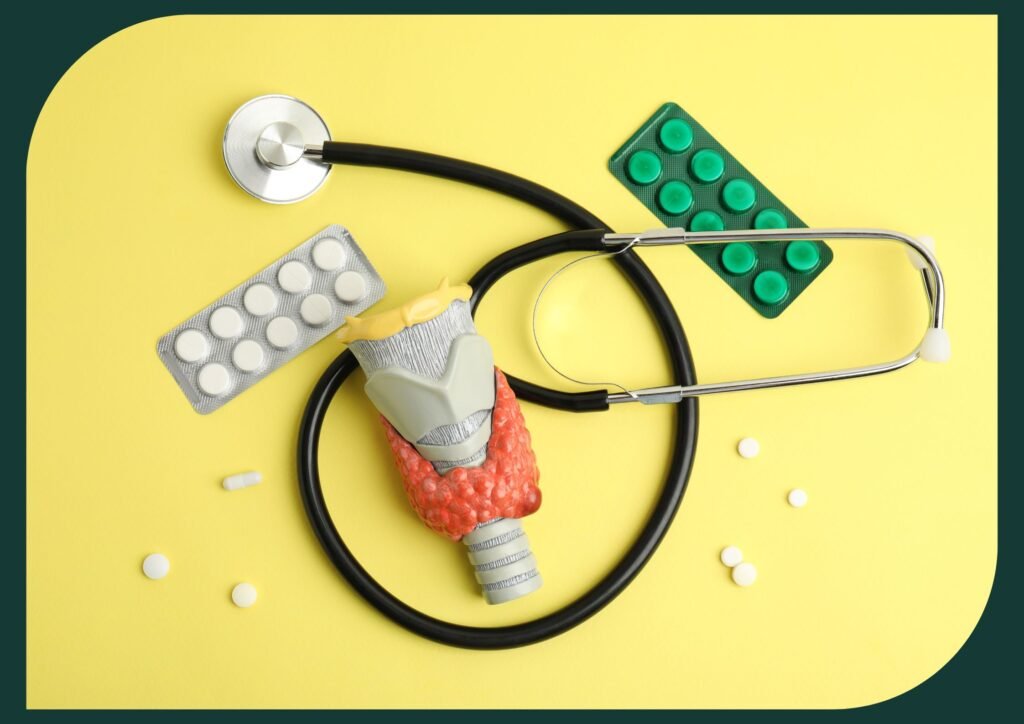
Monitoring and Adjustments
Finding the right dose often takes time and patience. Your doctor will typically:
- Recheck your TSH levels 6-8 weeks after starting treatment or changing doses
- Make gradual adjustments until your levels stabilize in the target range
- Monitor you annually once your dose is established
- Adjust your medication if you develop other health conditions or start new medications
Factors That Can Affect Medication Absorption
Several factors can interfere with how well your body absorbs levothyroxine:
- Digestive issues like celiac disease or inflammatory bowel disease may impact how well you absorb the medication
- Coffee, calcium supplements, and iron can reduce absorption if taken too close to your medication
- High-fiber foods may also interfere with absorption
- Other medications such as proton pump inhibitors, calcium channel blockers, and some cholesterol medications can affect absorption
Lifestyle Changes and Dietary Considerations
While medication is the cornerstone of hypothyroidism treatment, certain lifestyle approaches can support your overall thyroid health and help you feel your best.
Nutrition for Thyroid Support
Essential Nutrients for Thyroid Function:
- Iodine: Found in iodized salt, seafood, dairy products, and sea vegetables. However, both too little and too much iodine can be problematic, so discuss supplementation with your healthcare provider.
- Selenium: This mineral supports thyroid hormone production and can be found in Brazil nuts, seafood, eggs, and poultry.
- Zinc: Important for hormone production and found in oysters, beef, pumpkin seeds, and legumes.
- Iron: Necessary for thyroid hormone synthesis and found in lean meats, spinach, and legumes.
- Vitamin D: Low levels have been associated with autoimmune thyroid conditions. Your doctor can test your levels and recommend supplementation if needed.
Foods to Include:
- Fatty fish rich in omega-3 fatty acids
- Colorful fruits and vegetables high in antioxidants
- Whole grains for sustained energy
- Lean proteins to support muscle health
- Probiotic-rich foods to support gut health
Foods to Limit:
- Highly processed foods that can contribute to inflammation
- Excessive amounts of cruciferous vegetables (broccoli, cabbage, kale) which can interfere with thyroid function if consumed in very large quantities
- Soy products, which may interfere with thyroid hormone absorption
Exercise and Physical Activity
Regular physical activity can help combat many symptoms of hypothyroidism:
- Cardiovascular exercise can boost energy levels and support heart health
- Strength training helps maintain muscle mass and bone density
- Flexibility exercises like yoga or tai chi can reduce stiffness and support mental well-being
- Low-impact activities like swimming or walking are gentle on joints
Start slowly if you’ve been sedentary, and listen to your body. As your thyroid hormone levels improve with treatment, you’ll likely find that exercise becomes easier and more enjoyable.
Stress Management
Chronic stress can interfere with hormone production and worsen hypothyroidism symptoms. Effective stress management techniques include:
- Mindfulness meditation or deep breathing exercises
- Regular relaxation practices such as progressive muscle relaxation
- Adequate sleep (7-9 hours per night for most adults)
- Social connections and meaningful activities
- Professional counseling if stress or mood changes are significantly impacting your life
Sleep Optimization
Quality sleep is crucial for hormone regulation and overall health:
- Address any sleep disorders like sleep apnea that might interfere with rest
- Maintain a consistent sleep schedule
- Create a relaxing bedtime routine
- Keep your bedroom cool, dark, and quiet
- Limit screen time before bed
Prevention and Management
While not all cases of hypothyroidism can be prevented, there are steps you can take to support your thyroid health and catch problems early.
Screening Recommendations:
- Discuss thyroid screening with your healthcare provider, especially if you have family history of thyroid disease
- Women over 60 should consider regular TSH testing as part of routine health maintenance
- If you have other autoimmune conditions, you may need more frequent monitoring
Know Your Risk Factors:
- Family history of thyroid disease
- Previous thyroid problems or surgery
- Autoimmune conditions like type 1 diabetes or rheumatoid arthritis
- History of radiation therapy to the head or neck
- Taking medications that can affect thyroid function
Maintaining Thyroid-Friendly Habits
- Stay up-to-date with preventive healthcare including regular check-ups
- Eat a balanced diet rich in thyroid-supporting nutrients
- Stay physically active within your capabilities
- Manage stress effectively through techniques that work for you
- Avoid smoking, which can interfere with thyroid function
- Limit exposure to environmental toxins when possible
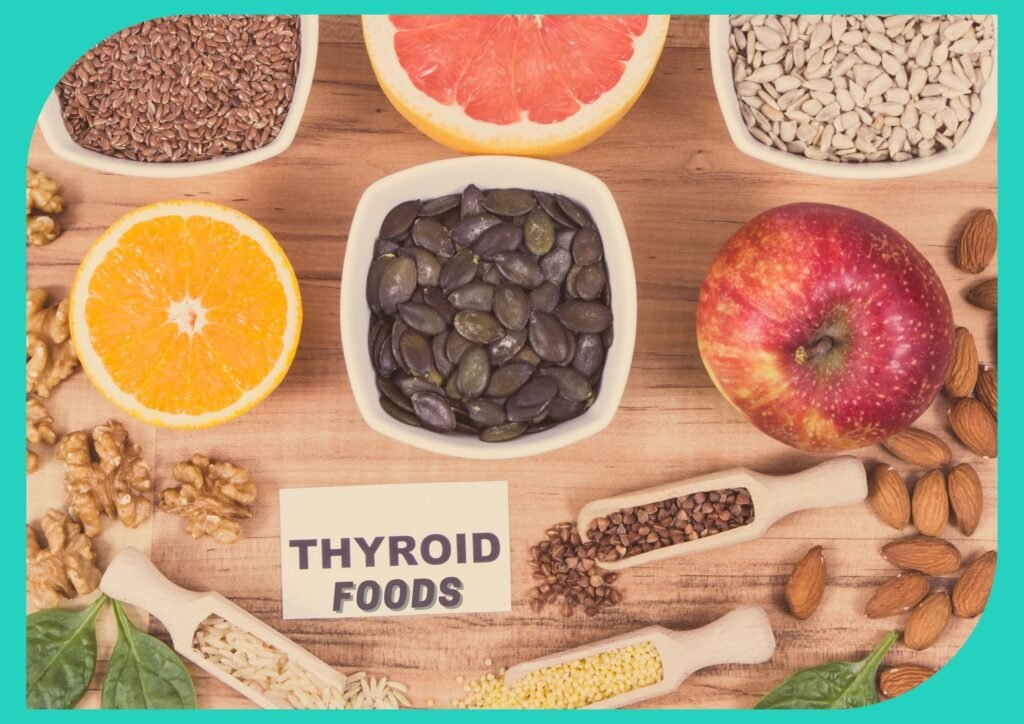
Living Well with Hypothyroidism
Receiving a diagnosis of hypothyroidism might feel overwhelming at first, but with proper treatment and self-care, most people with this condition lead full, active lives. Here are some strategies for thriving with hypothyroidism:
Building Your Healthcare Team
- Work with a healthcare provider who listens to your concerns and symptoms
- Consider seeing an endocrinologist (hormone specialist) if your case is complex
- Keep all healthcare providers informed about your thyroid condition and medications
- Don’t hesitate to advocate for yourself if you’re not feeling well despite “normal” lab values
Tracking Your Health
- Keep a symptom diary to help identify patterns and triggers
- Monitor your energy levels, mood, and physical symptoms
- Track your medication adherence and any factors that might affect absorption
- Note how you respond to dose changes or other treatments
Staying Informed
- Remember that managing hypothyroidism is often a long-term process that requires patience
- Learn about your condition from reputable sources
- Stay informed about new treatment options and research
- Connect with support groups or online communities if helpful

When to Seek Additional Help
While most people with hypothyroidism do well with standard treatment, certain situations warrant additional medical attention:
- Development of other health conditions that might affect your thyroid management
- Persistent symptoms despite optimal medication dosing
- New or worsening symptoms that might indicate other health issues
- Side effects from thyroid medications
- Difficulty with medication absorption or frequent dose changes needed
- Pregnancy planning or pregnancy, which requires careful medication adjustment

Conclusion
Are you currently managing hypothyroidism, or do you recognize some of these symptoms in yourself or a loved one? Whether you’re newly diagnosed, considering testing, or have been managing this condition for years, we’d love to hear about your experiences. What strategies have worked best for you in managing symptoms? Have you discovered any helpful tips for taking your medication or supporting your energy levels naturally? Share your insights in the comments below, your experience might be exactly what another reader needs to hear!
Disclaimer
The content provided on MySeniors.World is for informational purposes only and is not intended as either financial or medical advice. Always consult a qualified professional before making any investment or health-related decisions.
Posts may contain affiliate links, meaning we earn a commission – at no additional cost to you, if you click through and make a purchase. Your support helps us continue providing valuable content.
Frequently Asked Questions About Hypothyroidism and Aging
- Is it normal for thyroid function to decline with age?
- Yes, thyroid function naturally changes as we age, with TSH levels gradually rising and hormone production subtly declining. However, significant hypothyroidism is not an inevitable part of aging and should be evaluated and treated when appropriate.
- How is hypothyroidism different in mature adults compared to younger people?:
- Symptoms in mature adults are often more subtle and may be mistaken for normal aging. Treatment approaches may also differ, with doctors often starting with lower doses and targeting different TSH ranges to account for age-related changes in hormone levels.
- Can hypothyroidism cause memory problems?
- Yes, hypothyroidism commonly causes “brain fog,” including difficulty concentrating, memory problems, and mental sluggishness. These cognitive symptoms often improve significantly with proper treatment.
- Do I need to take thyroid medication forever?
- Most people with hypothyroidism require lifelong hormone replacement therapy. However, your dose may need adjustment over time based on changes in your health, weight, other medications, or natural changes in your body’s hormone needs.
- What’s the difference between subclinical and overt hypothyroidism?
- Subclinical hypothyroidism means your TSH is elevated but your free T4 is still normal, often with mild or no symptoms. Overt hypothyroidism involves both elevated TSH and low free T4, typically with more noticeable symptoms. Treatment decisions for subclinical hypothyroidism depend on various factors including age, symptoms, and TSH level.
- Can diet alone treat hypothyroidism?
- While proper nutrition supports thyroid health, diet alone cannot treat hypothyroidism. Hormone replacement therapy is necessary to restore normal thyroid hormone levels. However, a healthy diet can support your overall treatment and help you feel your best.
- Is it safe to take thyroid medication if I have heart problems?
- Thyroid medication can be safely used in people with heart conditions, but it requires careful monitoring and possibly slower dose adjustments. Your cardiologist and primary care provider should coordinate your care to ensure your thyroid treatment doesn’t adversely affect your heart condition.
- Why do I still feel tired even though my TSH is “normal”?
- Several factors could contribute to persistent fatigue: your TSH might be normal for the general population but not optimal for you individually, you might have other health conditions contributing to fatigue, or you might need a different approach to thyroid hormone replacement. Discuss these concerns with your healthcare provider.
- Can stress make hypothyroidism worse?
- Chronic stress can affect your body’s hormone balance and may worsen hypothyroidism symptoms. Stress management techniques, adequate sleep, and regular relaxation practices can be important parts of your overall treatment plan.
- How often should I have my thyroid levels checked?
- Once your medication dose is stable, most people need thyroid function tests annually. However, you may need more frequent monitoring if you’re adjusting medications, have other health changes, or are experiencing symptoms that might indicate your dose needs adjustment.
REFERENCES
- Thyroid Research Journal. (2023). Age-related variation in thyroid function – a narrative review highlighting important implications for research and clinical practice. https://thyroidresearchjournal.biomedcentral.com/articles/10.1186/s13044-023-00149-5
- American Thyroid Association. (2020). Older Patients and Thyroid Disease. https://www.thyroid.org/thyroid-disease-older-patient/
- Thyroid Research Journal. (2019). Hypothyroidism in the older population. https://thyroidresearchjournal.biomedcentral.com/articles/10.1186/s13044-019-0063-3
- NCBI Bookshelf. Hypothyroidism in Older Adults – Endotext. https://www.ncbi.nlm.nih.gov/books/NBK279005/
- Cleveland Clinic Journal of Medicine. (2025). Most elderly patients with subclinical hypothyroidism do not need to be treated. https://www.ccjm.org/content/92/4/221
- PMC. (2021). Levothyroxine Therapy in Elderly Patients With Hypothyroidism. https://pmc.ncbi.nlm.nih.gov/articles/PMC8006441/
- American Thyroid Association. Guidelines for the Treatment of Hypothyroidism: Prepared by the American Thyroid Association Task Force on Thyroid Hormone Replacement. https://www.liebertpub.com/doi/10.1089/thy.2014.0028

